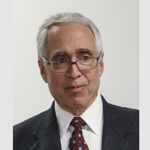100 Days in the Shadows
Unfortunately for Bush, those extra days have done little to change the initial grades. At least for now, the Bush administration is best known for what it is not than what it is. On a personal level, Bush is most certainly not Bill Clinton. That has given him a longer-than-expected honeymoon with an intrigue-fatigued American public.
Absent some miracle that would produce a tax bill, Bush is likely to be the first President in 50 years to end his first 100 days in office without signing a single bill that he can claim as his own. At parallel points in their administrations, President Reagan was closing in on his dramatic mid-summer budget and tax-cut victories, while President Clinton had already signed the Family and Medical Leave Act, and was well on the way to Americorps.
If any metaphor might stick so early in the term, Bush is best described as the "Stealth President." His mark on big decisions is difficult to discern, and his involvement in the day-to-day policy-making process is impossible to measure. Americans know he has a good sense of humor and a fierce dislike of cell phones. He may be a fitness buff, but no one really knows how much he is willing to lift.
Nevertheless, Bush gets an A on the transition into office. He survived his truncated 40-day transition with only one major mistake-Linda Chavez, who withdrew her nomination for Labor Secretary after the flap over allowing an illegal immigrant to stay in her house. Bush avoided the early stumbles that beset Reagan on Social Security cuts and Clinton on gays in the military. Bush also deserves an A+ for the timely assembly of his White House team. Building around Vice President Dick Cheney, the Bush White House is an MBA's dream: efficient, predictable, well controlled, on time, under budget.
Bush also gets an A on the political presidency. Indeed, the most popular question in Washington these days is how Bush has gotten away with his flip-flops on global warming, rollbacks on environmental protection, and right turns on taxes, abortion and the budget. Democrats thought such fickleness would surely unravel his mandateless presidency. With former Vice President Al Gore AWOL and Clinton in the early stages of what appears to be a self-imposed 12-step program to relinquish the presidency, Democrats have yet to find a message or leader that can ruffle the Bush agenda. Nor, it seems, can they provoke the laid-back Bush. To the contrary, he is almost Reaganesque in his ability to avoid confrontation on issues that should produce a public backlash.
But Bush can bask in Clinton's shadow only for so long. Sooner or later, the spotlight will shine on Bush. Democrats will find a message that sticks, either by cranking up the juice on the third rail of American politics-Social Security-or by coalescing around a "down home" candidate such as South Dakota's Tom Daschle, who can give Bush a run on the like-ability index.
That's when the administration will have to address its three failing grades.
The first F is for the domestic agenda, where the Bush administration has had more false steps than a blindfolded tango dancer. Bush's faith-based initiative has been stalled for three months, beset by critics on the left and right. The prescription drug proposal has yet to emerge from the ongoing debate about the true size of the projected budget surplus. And the administration is still months away from getting its domestic appointees in place.
The second F is for government reform, where the Bush administration has been silent on everything from campaign finance to public service reform. By raising the threat of a veto on the former, while minimizing the need for the latter, Bush may be squandering a historic moment to rebuild public confidence in government.
The third F, or perhaps "incomplete," is for Bush's connection, or lack thereof, with the American people. No one knows for sure why Bush did not greet the Navy reconnaissance crew when it returned from China in April. Perhaps Bush simply wanted to draw a distinction from Clinton, who likely would have found a way to greet the crew in Guam.
Whatever the reason, Bush needs to recognize that Americans expect to have a personal relationship with their President. As former President Bush learned, Presidents must know something about grocery scanners, gasoline prices and the impact of the economy on ordinary citizens. And the public must know something more about the President than his golf handicap. In short, Bush must let the public see more of who he is, how he works and what he believes. Unless he improves his grades on the personal side of his presidency, Bush may well be sharing stories with his father about how incumbent Presidents sometimes lose their bids for reelection.
Paul C. Light is vice president and director of governmental studies at the Brookings Institution and senior adviser to the Presidential Appointee Initiative.
NEXT STORY: A Government Forecast







